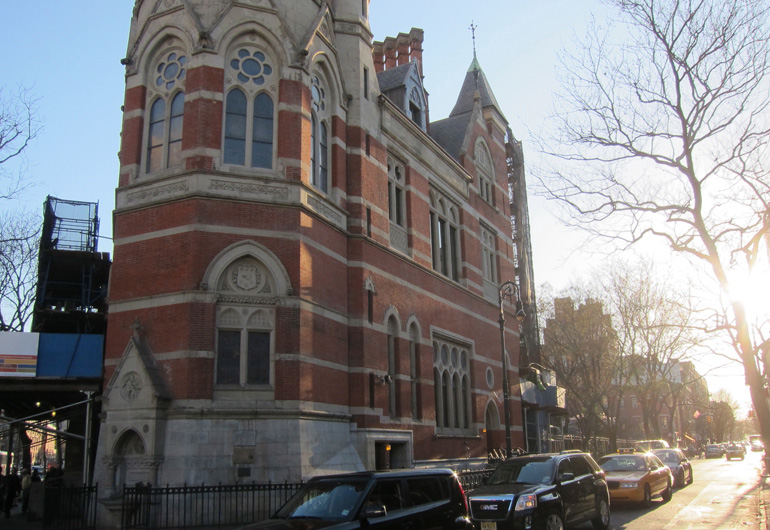Gotham Diary:
Pilgrim
21 March 2012
In the middle of the last decade and beyond, I went to a fair number of book events, readings and signings. I stopped going for a number of reasons, but one of them was a feeling of importunity: I wanted something from the book event experience that it was unreasonable to expect authors to provide. I didn’t want to present myself as a fan. No; I wanted to present myself as a serious reader, with not entirely inarticulate thoughts of his own. I wanted, in short, to present myself as an author myself, as the author of this site.
That’s why I went down to the Village yesterday evening to see and hear and to meet Peter Cameron, who read from his new novel, Coral Glynn, answered a few questions, and then signed books. (Someone asked him where the book’s title came from, and that turned out to be quite a story.) A few weeks ago, I scribbled some notions about Coral Glynn in this space, and, the next morning, I received a nice note from Mr Cameron. It was not my best moment by any means; my remarks had been glancing and less than coherent. I was convinced that Coral Glynn was laced with allusions and other references to mid-century British fiction, and afraid that, if I attempted a straightforward commentary, I’d reveal a stunning ignorance of this literature — all the more stunning in being illusory, as I am not in fact ignorant of it.
I felt challenged by Coral Glynn to guess its secrets and to crack its codes. The mainstream reviews, to my mind, were all wet; they took the book at face value, a period story about the silent sufferings of extremely repressed English men and women. Stiff upper lip and all that. In the end, they all made Coral Glynn into the book version of one of those porcelain or textile tchotchkes that can be ordered from the pages of the BBC catalogue and elsewhere. I’ll be the first to acknowledge that the surface of Coral Glynn might be described as “unassuming.” But I’ll be the last to let it go at that.
Since I couldn’t think of anything clever to say, I hemmed and hawed and gagged. Nevertheless, Peter Cameron dropped me a nice note to thank me. So I was able to present myself in the desired capacity last night at Three Lives Books. Mr Cameron may have regarded me as a deluded pilgrim from Yorkville, but he could not have been more pleasant, and I had none of the old feeling of shortcoming when, afterward, I headed uptown for dinner with Kathleen.
Mr Cameron replied to one question with the statement that he writes “from his subconscious.” My first reaction to this was to feel foolish about looking for hidden meanings in Coral Glynn, because any meanings remaining hidden would be locked up in the author’s mind. Then I thought: “How American.” I could hear an Englishman saying the same thing, and Coral Glynn was there to remind me why. The English don’t have subconsciouses; it’s not allowed. They are forced by each other to register but repress so much information about status and permission that there is neither the room nor the energy for subterranean drives. If you do have a subconscious, poor sod, then you have no choice but follow Edward St Aubyn into substance abuse, to shut it up. For the Coral Glynns of the world, just getting through the day without provoking hostilities is exhausting enough.
Three Lives is easily the most charming book shop that I’ve ever visited, ancient-seeming but not at all musty. I had never been before. I wonder if I’m carrying this native New Yorker thing too far. No self-respecting native New Yorker toddles out to gawp at the Statue of Liberty up close. You’d think I believed that walking around Greenwich Village is for out-of-towners. I never seem to have any reason to go to that part of town. And the part of town that I live in is one that almost no one from anywhere else knows or wants to know anything about.
***
Â

